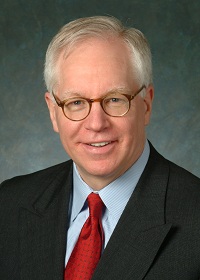
In the years following the attacks of September 11, 2001, many in the international aid and development communities attempted to show causality between economic stagnation and the type of violent radicalization that led to those attacks. That the men who planned and executed the heinous acts ten years ago were well-educated and well-resourced elites was a fact conveniently ignored by those who would suggest that disenfranchised individuals resort to terror for want of economic opportunity. Some excellent work has been done of late to show that aid and economic development alone make for poor counterterrorism strategy, and indeed, their limitations as components of a counterinsurgency effort have become evident in nearly ten years of war in Afghanistan and Iraq.
Now, at a time when Americans are weary from a decade of complicated wars and eager to focus on new domestic economic realities, the rhetorical pendulum is swinging away from counterinsurgency and nation building as the framework through which the United States engages those fragile, economically stagnant states that so often serve as nurseries for violent extremism. Foreign assistance will not defeat terrorists – it was not development dollars but a dedicated and relentless force of elite special operators and intelligence analysts that brought retribution to Osama bin Laden – but it would be a terrible mistake to discount the vital role that economic growth must play in fostering global stability. It is not a coincidence that the countries from which most violent extremists emanate have seen low or negative rates of growth over the past 30 years, nor that these are the countries most prone to civil war and insurgencies.
Foreign assistance will not defeat terrorists … but it would be a terrible mistake to discount the vital role that economic growth must play in fostering global stability.
All growth is not created equal. Development economists, many of whom are on the payroll of the world’s international aid and development organizations, expend considerable energy conducting regression analyses of socioeconomic, political and security inputs as they seek correlation between, say, violent acts and GDP growth. But a country’s per capita GDP can grow from a change in world oil prices, currency valuation or foreign aid injection, with no real benefit to the people; further study is needed on the security effects of “real” growth – that which stems from the creation of new firms, new lines of business and new industries, which lead to faster job creation and through which the people – and not just the state – come to own the economy.
This is at the core of a new field of study known as expeditionary economics, a phrase I coined last year in an article in Foreign Affairs, and which has subsequently been taken up by military and civilian reconstruction personnel as a framework for reconsidering how to rebuild war- and disaster-stricken countries. In the years since the unabashed success of the Marshall Plan and the postwar reconstruction of Japan, the developed world has a discouraging record of development in fragile and failing states, providing perpetual sustenance aid as it attempts to apply the rigid prescriptions of the Washington Consensus and prioritizes large-scale infrastructure construction projects and state-run extraction of natural resources. The United States has paid little regard over the years to the private sector in the developing world, even though entrepreneurs are responsible for the dynamism of our own economy through the creation of new, high-growth firms. The nascent doctrine of expeditionary economics holds that development policies could see unprecedented success were they only to apply to the developing world the proven economic model practiced in the United States by prioritizing private sector growth driven by new and young firms.
Though it may be a bitter pill for the international development community to swallow, the American military is well placed to execute a mandate for fostering economic growth in fragile states, having the resources, the interest and the presence in the economically stagnant countries that are – again, not coincidentally – stricken with instability and violent extremism. Indeed, the military is already a lead actor in development, not only in Iraq and Afghanistan, where it leads or cooperates on the implementation of a number of economic programs, but in Africa and South and Central America too, where military combatant commands have assumed prominent development roles. In total, the Department of Defense controls one-fifth of U.S. foreign aid, and what it currently lacks in formal economic expertise it in part makes up for with now years of development experience and an institutional understanding that success in complex operations like our current wars necessitates an economic component.
Though it may be a bitter pill for the international development community to swallow, the American military is well placed to execute a mandate for fostering economic growth in fragile states…
It is worth noting, too, that the American military, despite being by some accounts the largest bureaucracy in the world, has proven remarkably innovative. Counterinsurgency doctrine is in many ways an imperfect work in progress, but there is no denying the change in approach within the military over the past ten years, from the general on the Joint Staff to the lance corporal on patrol in Kandahar. One would be hard pressed to point to similar adaptation at USAID or the State Department.
It has been said that bureaucracy is the enemy of innovation. It is one reason large businesses fall and a reason why government so consistently fails to meet our expectations. But after many decades of development activity with nary a success story in sight, innovation in development is exactly what is needed. For all of these reasons, the military will continue to have a role in bringing economic growth to those countries that form the nexus of instability, insecurity and economic stagnation. Expeditionary economics offers the framework of a military doctrine for development. I and my colleagues at the Kauffman Foundation have proposed the creation of two military institutions that would uniquely provide an independent capacity for economic analysis and train a perennial professional cadre of development specialists.
- The first, the Institute for Military Economic Analysis, would provide independent analysis and speculative theorizing around the “what if” questions that are particular to military planning. Devoted to speculative economics in the realm of geopolitical power relationships, its military and civilian academic staff would focus on developing effective approaches to economic development in instances of American military involvement, pre-, mid- and post-conflict. Such an institution could be a driving force for a new realism in economic science.
- The second proposal is less revolutionary, but rather a revival of an institution that trained the military officers responsible for two of the few real development success cases – those of post-war Germany and Japan. The School of Military Government operated in Charlottesville, Virginia, and at 10 universities across the country during the Second World War. Graduates of these programs went on to serve in military governments, with responsibilities including money and banking, natural resources, labor, public works, legal administration, public health, and industry and commerce. In pursuing equally ambitious and perhaps even more complicated nation building challenges, military officers today are tasked with very similar duties, but have benefitted from none of the rigorous training that the School of Military Government once provided.
Taken together, these institutions would develop and test economic development theory, provide ongoing critical support to military planners, and equip a professional cadre of development experts with the skill set to build capacity in a fragile state and put into place the conditions to allow for entrepreneurial growth. (Considerably more information about both proposals can be found at www.expeditionaryeconomics.org).
Expeditionary economics does have a role in the counterterrorism or counterinsurgency fight … In giving the people ownership of the economy through entrepreneurship and private sector growth, it gives meaning to the public diplomacy efforts that are critical to defeating the terrorists’ “propaganda of the deed.”
Economic development alone is not a tactic for counterterrorism or counterinsurgency. The United States cannot use development or the carrot of economic prosperity to convert a terrorist into an entrepreneur. Most existing anecdotal and quantitative research on the subject indicates that in most cases, once he has adopted a philosophy of violent extremism, a terrorist has irrevocably become a political, not an economic actor. In these cases, the threat can only be mitigated by the sharp stick of military (or law enforcement) action.
Expeditionary economics does have a role in the counterterrorism or counterinsurgency fight, however. In giving the people ownership of the economy through entrepreneurship and private sector growth, it gives meaning to the public diplomacy efforts that are critical to defeating the terrorists’ “propaganda of the deed.” In creating sustainable economic growth in the country harboring terrorists, it provides the state with increased resources to provide for its own security and to combat the terrorist threat.
When applied in a pre- or post-conflict setting prior to or following a counterinsurgency or counterterrorism campaign, effective economic development, by providing economic opportunity and social stature to would-be terrorists, has the potential to preclude the development of violent extremism before it has opportunity to flourish.
Carl J. Schramm is the President and CEO of the Ewing Marion Kauffman Foundation, the world’s premier organization dedicated to creating new firms and understanding the role they play in economic growth.




